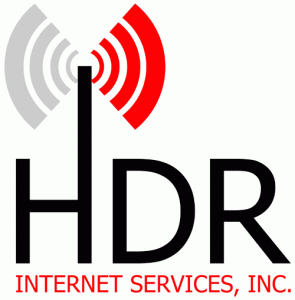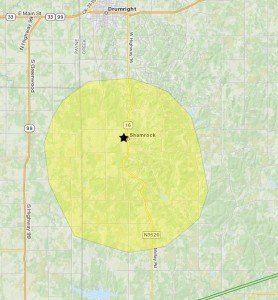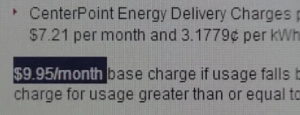
Shamrock Museum
The city of Shamrock, Okla. may not be a city for much longer, facing unincorporation and liquidation of its remaining assets, which include the abandoned police cars that used to earn the city enough ticket revenue to keep the doors open. But fast (and free at the local community center) Internet prevails (with competition, too) in a city with fewer than 100 remaining citizens. It’s all thanks to a federal broadband grant and an existing Wireless ISP.
Shamrock’s unlucky predicament comes at the expense of the boom-and-bust oil business that launched dozens of small towns in rural Oklahoma, only to leave them largely abandoned when the oil dried up, or the cost to access it becomes too prohibitive. Once a community numbering 10,000, Shamrock, located nearly halfway between Oklahoma City and Tulsa, had recently been surviving on revenue earned from writing traffic tickets in infamous speed traps set up along Highway 16. Shamrock, along with Big Cabin, Caney, Moffett, and Stringtown, became so notorious for their dependence on traffic ticket revenue to keep the towns afloat, at one point the state government publicly designated them “speed trap towns” and banned them from writing tickets on state and federal highways. When Creek County officials learned the city was using non-commissioned officers to write tickets, they shut down the whole operation.
Soon after, residents found the city hall padlocked, with coffee cups still on the desks and police evidence lockers still stuffed with property from active criminal cases (although seized marijuana and beer has since disappeared.)
 In fact, the only service now in operation at the city hall, now converted into a “community center,” is Internet access on 10 computers made possible by @Link Services LLC, an Oklahoma City-based Wireless Internet Service Provider (WISP) that provides service in rural areas, with the help of a broadband grant from the U.S. Dept. of Agriculture.
In fact, the only service now in operation at the city hall, now converted into a “community center,” is Internet access on 10 computers made possible by @Link Services LLC, an Oklahoma City-based Wireless Internet Service Provider (WISP) that provides service in rural areas, with the help of a broadband grant from the U.S. Dept. of Agriculture.
The broadband grant, amounting to $536,000, with matching funds of $134,000 kicked in by @Link, covers the costs of running the community center for two years and extending wireless access with the construction of a new wireless radio tower in Stillwater, which allows the company to reach Shamrock residents.
In addition to providing free access at the former city hall, @Link also sells Internet access to area residents (the only remaining business in town is a diner):
|
@Home Standard |
512 Kbps download |
512 Kbps upload |
$34.95 |
|
|
@Home Advanced |
1.5 Mbps |
up to 1.5 Mbps |
$39.95 |
|
|
@Home Premium |
3.0 Mbps |
up to 1.5 Mbps |
$46.95 |
|
|
@Home Premium Plus |
5.0 Mbps |
up to 3.0 Mbps |
$59.95 |
|
|
@Home Max |
6.0 Mbps |
up to 6.0 Mbps |
$74.95 |
|
 “This is going to be the last place anyone would provide Internet without government funding because there is no chance of turning a profit,” Kerry Conn, chief financial officer of @Link Services told The Oklahoman. “But if you don’t have Internet services, your town is going to die.”
“This is going to be the last place anyone would provide Internet without government funding because there is no chance of turning a profit,” Kerry Conn, chief financial officer of @Link Services told The Oklahoman. “But if you don’t have Internet services, your town is going to die.”
@Link CEO Samual Curtis says their wireless Internet access sells itself.
“Broadband is a very easy sell where there is no broadband,” Curtis told the newspaper.
The only problem with that is Shamrock currently does receive service from another Wireless ISP — OnALot, a service of HDR Internet Services, Inc. OnALot operates from 70 systems in more than 25 cities and communities across rural Oklahoma. @Link’s arrival in town, with the assistance of a federal broadband grant, came as a surprise to some Shamrock residents who already had Internet service from OnALot. Now those customers have two choices — both wireless — for Internet service. OnALot, the incumbent, is often cheaper, too:
| PLAN |
12 Month
Contract |
Credit or
Debit Card |
Monthly Fee For Service |
| A |
No Contract |
No |
$42.00 |
| B |
No Contract |
Yes |
$37.00 |
| D |
Yes |
Yes |
$33.00 |
OnALot does not sell traditional speed tiers. Instead customers share access points rated at speeds of 11 and 54Mbps. Customers do not actually see anything close to those speeds, because they are theoretical maximums and each access point is shared by several users. But since many residential customers do not have a firm understanding of what different speed levels represent, it has proven workable for HDR Internet to sell services based on price, not speed.
OnALot does sell dedicated, private wireless circuits to customers who don’t want to share, but they are comparatively expensive:
| Speed |
Equipment |
Monthly Fee |
| 3.0 / 512 |
$400.00-$600.00 |
$200.00 |
| 6.0 / 768 |
$400.00-$600.00 |
$350.00 |

OnALot.com operates both standard Line-of-Sight and Near-Line-of-Sight systems on the 80' tall water tower on the west side of Shamrock.
One Oklahoman reader, Bobbi, wondered why @Link received federal grant money to provide Internet service in a community that already had access.
“Why this company didn’t do their homework before they used government money to provide a service to a town that had that service,” Bobbi asked. “Wouldn’t that be a misuse of the grant money?”
Broadband grant funding has come under criticism at times for funding projects that incumbent providers accuse of duplicating services. A study funded by the National Cable & Telecommunications Association, the cable industry’s top lobbyist, found several instances of grants that would deliver broadband service to areas already served by other providers.
“While it may be too early for a comprehensive assessment of the [government]’s broadband programs, it is not too early to conclude that, at least in some cases, millions of dollars in grants and loans have been made in areas where a significant majority of households already have broadband coverage, and the costs per incremental home passed are therefore far higher than existing evidence suggests should be necessary,” the study says.
Thus far, much of the funding for rural Oklahoma seems to be directed towards wireless Internet access projects, which typically serve sparsely populated areas cable and phone companies have traditionally ignored.
The NCTA’s criticism, in particular, was directed against its would-be competitors. The lobbying group suggests the price of competition was too high.
Based on the cost of the direct grants and subsidizing the loans, the NCTA study estimated that the cost per incremental home passed would be $30,104 if existing coverage by mobile broadband providers was ignored, and $349,234 if mobile broadband coverage was taken into account.
Wireless ISP operators have told Stop the Cap! many of their projects are self-financed and do not receive government assistance. Some WISP operators have accused the government of making broadband grants to wireless operators a cumbersome, if not impossible prospect because incumbent telephone companies are often most likely to meet the government’s grant criteria.
For Shamrock residents, one piece of good news: @Link Services and OnALot both have no Internet Overcharging schemes like usage caps. However, OnALot prohibits the use of peer-to-peer software (torrents) and @Link Services maintains the right to curtail speeds for those who create problems for other users on their shared wireless network.
OnALot’s usage policies are among the most frank (and common sense) we’ve seen, because they are up front with customers about the impact certain traffic can have on their wireless network:
- You are paying us to download from the Internet. We do not limit you on that. You can download anything you want 24/7. Games, email, web pages, radio stations, and so on – we don’t care, downloading is what you are paying us for. That said, we would prefer that you do not leave an active game un-attended, or run a radio station continuously, as these eat up bandwidth that others could be using. When you’re done with your game, please turn it off.
- We do have restrictions when it comes to uploading TO the Internet. P2P or Peer-to-Peer programs are NOT allowed. These limitations apply primarily to file sharing programs. We do NOT allow music or video sharing programs, bit torrent programs or other programs where outside users can extract files from your computer with or without your express consent. And seriously, do you actually WANT others to have full access to your computer? That’s what you’re giving to file sharing programs! Please call us if you are unsure if the program you are using is a file sharing program.
- Yes, you can upload to your favorite website, send big emails, and transfer any size files that are under your control. That’s OK with us – these are intermittent in nature and under your full control. It’s the unattended uploading that sharing programs do that we do not allow.
- If your computer has a virus and is “spewing” out onto the Internet, we expect you to have it cleaned. Causing others to become infected is wrong, and we may take steps to disable your Internet connection. We will call you first, explain what is going on and ask that you have your machine cleaned. If you decide not to do this, we will then cut you off until you do.
![]() Cogeco customers in the Niagara Region watching their neighbors further north in Hamilton and Toronto enjoy faster broadband service can finally obtain faster Internet access from incumbent cable provider Cogeco, who this week unveiled three new faster speed packages in Niagara Falls and St. Catherines.
Cogeco customers in the Niagara Region watching their neighbors further north in Hamilton and Toronto enjoy faster broadband service can finally obtain faster Internet access from incumbent cable provider Cogeco, who this week unveiled three new faster speed packages in Niagara Falls and St. Catherines.

 Subscribe
Subscribe





